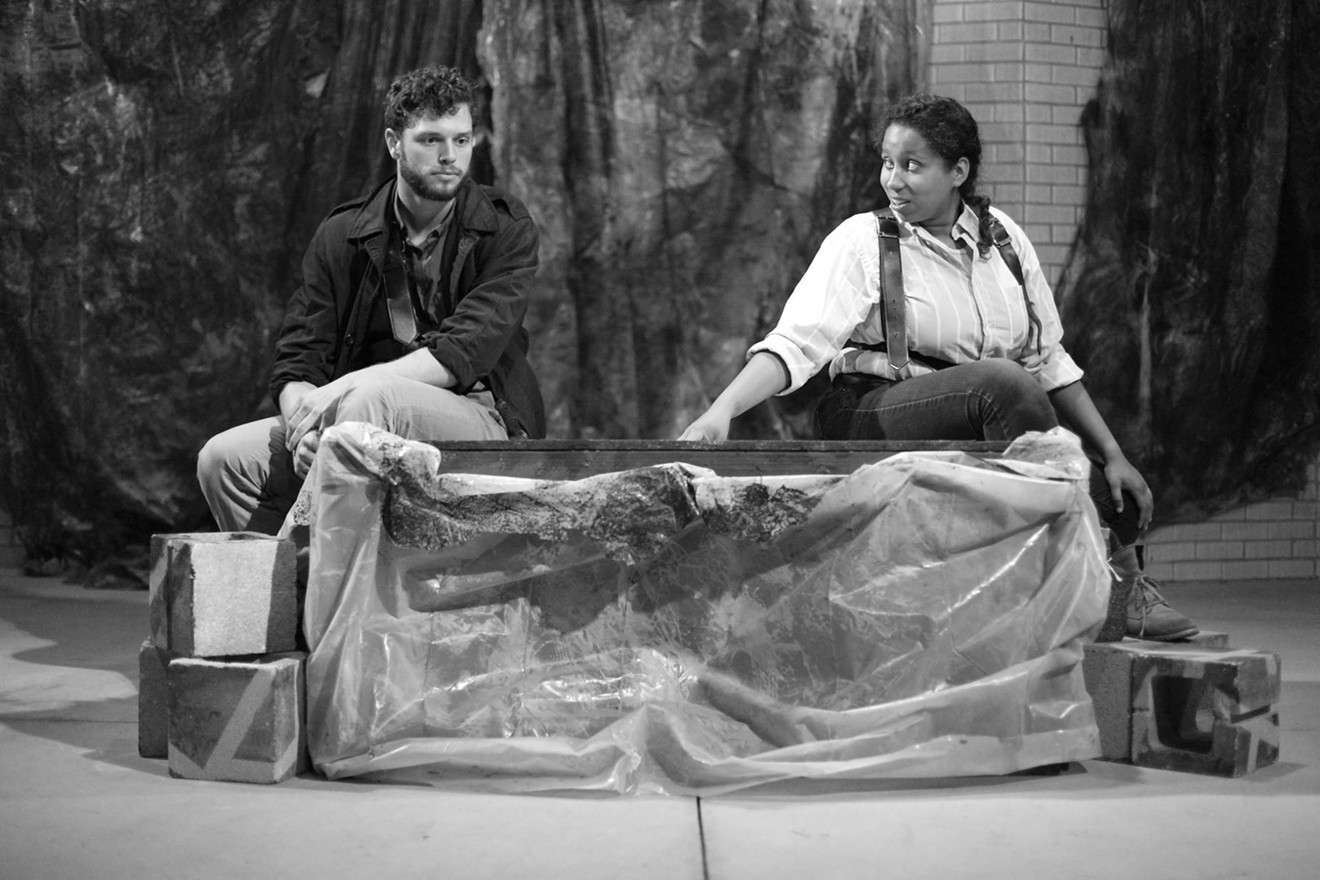In 1899, French actress Sarah Bernhardt famously played Hamlet and brought an impishness to the Danish prince that audiences had never seen before. There is a movement catching fire now for women to take on these classic, meaty Shakespearean roles traditionally played by men: The latest production of Twelfth Night at London’s National Theatre had Tamsin Greig as Malvolia, and last year, 80-year-old actress Glenda Jackson stunned audiences with her King Lear at the Old Vic.
In Dallas, House Party Theatre is producing Julius Caesar with an almost entirely female cast. Beth Lipton plays the title role while Sasha Davis embodies Brutus, alongside four other women in male roles. Sarah Hamilton, the theater company's general manager, calls it “a tactical and driving female take on the Roman emperor’s betrayal and murder.”
Hamilton is not out for the gimmick, though.
“Culpability is a running theme, as is patriotism, but what I've learned about this play since working on it is that it is very much about love," she says. "It is the love for Rome and its people that drives Brutus to betray Caesar.”
Cassius' love for Brutus causes him to defer to her on decisions, and sow their demise.
From the beginning, Hamilton knew she would consider actors of all genders for each part, and she remained open-minded until after the auditions.
“I was interested in hearing female actors read for the male characters for many reasons. Practically speaking, I am sick of Shakespeare’s plays being dominated by male actors," she says. "Shakespeare is still a huge part of the theater canon, and since most of his characters are male, you end up with a significant portion of job opportunities that exclude women.”
Adapting the play to fit women didn't take much work, either. Hamilton swapped pronouns but held true to the text much as possible. The issues the characters deal with are genderless, she says.
“Brutus is ultimately concerned with honor, democracy and the good of the people of Rome. This has nothing to do with a male identity. In fact, one could even make the argument that Brutus’ selflessness and generosity are typically 'feminine' characteristics.”
Hamilton says “nontraditional” casting can bring clarity to parts that have typically been played by men. It exposes the characters for who they really are. What is important to them? What are they afraid of? What are they trying to achieve?
“When you thwart the audience’s expectations a little bit, they naturally listen more and engage more fully. It also forces you to examine closely what is actually going on. Is this a scene about who is the better leader, or is it a love scene?”
Hamilton says she and her cast have continually been delighted by discoveries about the story of Julius Caesar.
“There is a well-known scene between Brutus and Cassius commonly referred to as 'the tent scene.' Before my work on this production, I had always understood this scene to be a strategic battle between two generals about who was better fit to lead," she says. "After doing this scene with Reese Arrington as Cassius and Sasha Davis as Brutus, my own preconceived notions about it dissolved.
"I was happily surprised to find out that this is a much more intimate and personal moment than I expected. These two characters created a new Rome together. They have enormous love and respect for each other, and the scene is more about mending their relationship than it is about the outcome of the battle at hand.”
Shakespeare’s genius was not in his ability to create stellar roles for men, but to embody humanness. The malleability of his characters has given them 400 years of endurance and means there are endless ways to interpret the characters. House Party Theatre's latest production is proof that great roles for women don’t have to stop at Lady Macbeth; there’s no reason we can’t have a Lady anything when it comes to Shakespeare.
Julius Caesar, through Friday, April 28, 508 Park, 508 Park Ave., $15, housepartytheatre.ticketleap.com.
[
{
"name": "Air - MediumRectangle - Inline Content - Mobile Display Size",
"component": "18855504",
"insertPoint": "2",
"requiredCountToDisplay": "2"
},{
"name": "Editor Picks",
"component": "17105533",
"insertPoint": "4",
"requiredCountToDisplay": "1"
},{
"name": "Inline Links",
"component": "18349797",
"insertPoint": "8th",
"startingPoint": 8,
"requiredCountToDisplay": "7",
"maxInsertions": 25
},{
"name": "Air - MediumRectangle - Combo - Inline Content",
"component": "17105532",
"insertPoint": "8th",
"startingPoint": 8,
"requiredCountToDisplay": "7",
"maxInsertions": 25
},{
"name": "Inline Links",
"component": "18349797",
"insertPoint": "8th",
"startingPoint": 12,
"requiredCountToDisplay": "11",
"maxInsertions": 25
},{
"name": "Air - Leaderboard Tower - Combo - Inline Content",
"component": "17105535",
"insertPoint": "8th",
"startingPoint": 12,
"requiredCountToDisplay": "11",
"maxInsertions": 25
}
]












